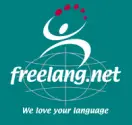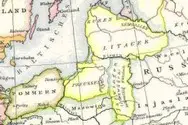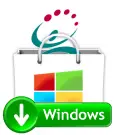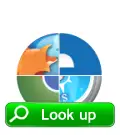| Freelang dictionary |
| Other Freelang resources |
| Sponsored Links |
Freelang Prussian-English dictionary
| Live from the Blog |
|
The Prussian language became extinct at the start of the 18th century. It was closely related to Lithuanian, Latvian and Polish. The Prussians were ethnically related to the Latvians and Lithuanians before the German people settled in the area. The Poles did once live in the Eastern and Western part of Prussia, though Polish is a Slavic language that is closely related to Ukrainian, Russian and Belrusian. Prussian was first written down during the 13th century. It was written [...] |
![]()
Prussian, or Old Prussian, is an extinct Baltic language, once spoken by the inhabitants of Prussia (now north-eastern Poland and Kaliningrad). It probably ceased to be spoken around the beginning of the 18th century, due to many of its remaining speakers dying in the famines and bubonic plague epidemics. Old Prussian is distantly related to the surviving Eastern Baltic languages, Lithuanian and Latvian. There are a few experimental communities involved in reviving a reconstructed form of the language in Lithuania, Poland, and other countries.
Features of this dictionary
Download our free dictionary (for Windows or Android) and browse both the Prussian-English and the English-Prussian lists. Look up a word, add or modify an entry, and learn words at your own rhythm from a personal learning list. Click here to learn more about the features or scroll down to download the program. An online version is also available, so you can browse the dictionary without downloading it.
Features of this dictionary
Download our free dictionary for Android! Browse the wordlists, look up words and practice your vocabulary at your own rhythm. An online version is also available, so you can browse the dictionary without downloading it.
Word list information
This dictionary was made by Renato B. Figueiredo.
List status: © Renato B. Figueiredo
Prussian > English: 3,774 words
English > Prussian: 1,904 words
Last update: March 21, 2014
First upload: November 5, 2008
Download
1. Read and accept the terms of our copyright notice
2. Click here to download the program (2.21 mb)
3. Click here to download the Prussian word list (441.68 kb)
4. Double click on each file and install in suggested folder.
Other Freelang resources
We have more than dictionaries and translation! Check out our collection of common expressions translated in all languages, test your knowledge with our quizzes about languages, or learn more about language families. To stay in touch with us, read our blog about languages and follow us on Facebook.






